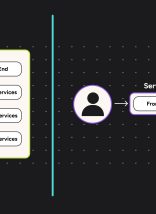It didn’t take long for the news of Uber’s conduct to come to my attention. One of my colleagues, Mike McTaggart, wrote a post about it on LinkedIn titled “Uber and Ethics in Technology.” As a mobile application developer for Atlantic BT, I soon found myself being approached by my colleagues wanting to know my perspective.
If you aren’t familiar with Uber, they’re a service that is essentially a crowd-sourced alternative to a taxi. It’s cheap, efficient, and they have a mobile app to go along with it that makes it easy to use the service to get around. It is also a mobile app that can track users in the background and allegedly has a “God View” tool that lets the company track the movements of their users.
At Atlantic BT, we pride ourselves on ethical conduct. We need to balance what’s possible with what’s the best position for the client. At times, that can make for some difficult conversations, but they are ones we believe in having because it results in a better end product.
Avoiding an Uber Situation: Ethics Guidelines in Mobile App Development
In my career, I’ve gotten requests as part of projects to track a user’s location in a mobile app. On Android, all the permissions an app requires are presented to a user up-front. Sometimes, there are completely valid reasons to request fine location access, such as displaying a map with directions to your destination. But there must always be a balance. In my role as a mobile developer, it is my job to provide guidance to our clients on where that balance is. To help, I use a few simple guidelines:
If the application will do something in the background, let the user know, and let them turn it off.
Always use the least-invasive method of collection possible. If knowing what county the user is in is good enough, there’s no reason to use GPS.
Properly disable invasive data collection when it is not needed. If you aren’t looking at a map to see your current location, I will actively disable location collection.
If information is collected, store it securely. If it doesn’t have to leave the phone, store it locally in a protected area.
If collected information must be stored “in the cloud” let the user know. Tell them what you are collecting, and when you will store it. Again, let the user choose to turn it on or off.
What concerns me about Uber and their handling of this situation is that it shakes faith in the mobile application industry. If people decide that they can’t trust mobile app developers, then they will simply find alternatives. A website may be slower and less efficient than a mobile app, but it can’t run in the background. By nature, mobile apps have more access to your device, and in turn, more access to you. It is absolutely imperative that all mobile developers make an effort to retain trust in our industry. When a company like Uber violates that trust, it doesn’t just hurt them and their users, it hurts all mobile developers.
Maintaining Trust in Mobile App Development
As I mentioned, I am a mobile developer. I love what I do, and I take pride in my work. I treat every project that I work on with care. I am writing code that users trust enough to install on their mobile phone, and I strive to always do my utmost to be worthy of that trust.
I don’t want to take the same approach as Uber in my work at Atlantic BT. In that interest, I have begun to consider what I can do to prevent that from happening. I will keep the story of Uber in mind, and I will make sure to discuss it if clients ask for something similar. It may be difficult, but if the time ever comes, as Mike said in his post, sometimes “we have to say ‘No.’”
What other considerations do you think we should have when considering users’ privacy? What can we do to keep your trust?
*photo credit: IntelFreePress on Flickr






